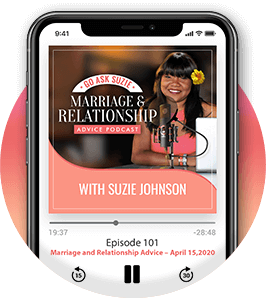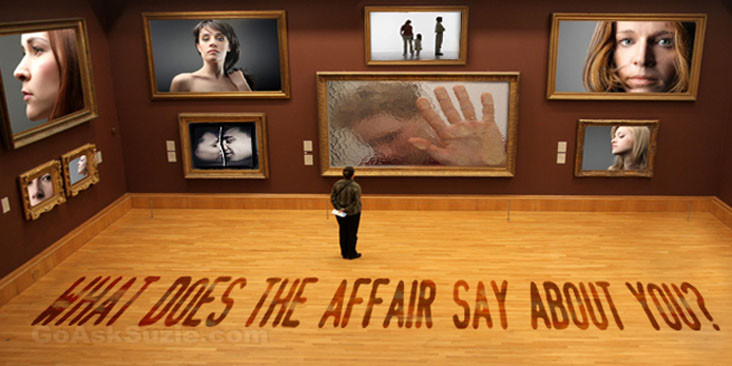Do you know what led you into the affair?
For Scott, it all started one week before his wedding day, when (for some reason) he visited a prostitute. After his wedding, Scott continued the pattern of visiting prostitutes until the day his wife found out. Sadly, he’d been married barely six months.
By the time he called me, he was desperate.
In our first session, I asked Scott to try to reconstruct the events leading up to the indiscretion. He told me that in the beginning, he told himself that all he was doing was having one last fling before committing to his fiancée, Karen, for the rest of his life. “What harm could it do?” he thought to himself, “After all, I’m not married… yet.” Scott was able to go through with it because technically, he wasn’t breaking any rules.
Another reason he told me was for stress relief.
He told me about the stress he was under. He talked about the financial black hole he and Karen had created, trying to pay for the wedding. He finally concluded he needed (and deserved) a break. “You know, just a little something to take my mind off things a while,” he said.
How do you spell stress relief?
Well, in Scott’s world… it’s a call girl. For a mere $700, she would give him a massage with the ever-famous “happy ending.” “Why not?” he convinced himself. “It’s not like I’ll actually be cheating. It’ll be strictly sex. No strings. No way of getting involved.” Interesting how people can find a way to justify doing anything they truly want to do. And Scott was no exception to this rule.
But that first time wasn’t smooth sailing.
Scott told me that after he booked the session with the prostitute online, he literally had to force himself to get in his car and follow through. (I say “forced himself” because he told me that there was a little inner voice whispering to him that what he was doing was wrong, but he didn’t listen to that voice.)
“When I walked inside, I was so nervous, but she was really nice. We talked… had a drink. She helped me to relax.” When he asked her, “What about the money thing?” She said, “Oh, we take care of that right away.”
At this point, I stopped him and asked him a question. “Scott… at any time during the experience… did you ever feel awkward?” “No, I wouldn’t say I felt awkward,” he replied. “Honestly, Suzie, by the time we got to the bedroom, I had totally forgotten that I had even paid her.” That was Scott’s first (but it wasn’t his last) encounter with prostitutes. By the time his secret life was uncovered, he had made seven more visits.
His worst nightmare came true.
By some fluke (which is how most wayward partners get caught), Karen found out. She was furious! She immediately threw him out of the house, and in an instant, Scott and Karen went from being newlyweds to being on the verge of divorce.
I asked him the all-important question.
“Scott, what led you to do it?” His answer? “I don’t know.” Believe it or not, his answer didn’t surprise me because in all my years of doing this work, I’ve noticed that many people are unconscious of what’s going on inside them. Too many people are asleep at the wheel of their lives. And so it’s not until they run to a brick wall that they get a wake-up call… to the truth.
How can you tell if you’re asleep at the wheel of your life? Here are some clues:
- You find yourself in the same type of trouble over and over again.
- You find yourself in situations without being quite sure how you got there.
- You find yourself doing the very things you’ve condemned others for doing.
- You find yourself in a place you told yourself you’d never be.
Since I don’t know your situation personally…
I’m going to use Scott’s experience as a model to show you how you can go about waking to the truth of how you got to where you are, as well as what you can do to make sure you never wind up there again.
In Scott’s case, it all began with a very innocent desire.
Did you notice it? Think back to the beginning of the story, and you’ll find the motivation that was driving Scott’s behavior. It was to… let off some steam… reward himself… have some “me” time.
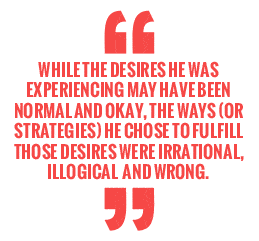
Innocent enough, right?
Think about it. Haven’t most of us held similar wishes at some points in our lives? Of course we have.
But wait!
Am I saying that because Scott’s desires and wishes were normal, then his actions were also right? No, not at all. And here’s why:
You see, while the desires he was experiencing may have been normal and okay, the ways (or strategies) he chose to fulfill those desires were irrational, illogical, and wrong.
How do we know it was wrong?
Am I taking a moral position here? No. I don’t need to. We can know for sure that Scott’s actions were wrong because he got a result he didn’t want.
Here’s the rule of thumb:
Whenever you take action that doesn’t get you the results you wanted, then the action you took was a mistake. Makes sense, right? Well, guess what. The reverse is also true. Whenever you take actions that get you the results you wanted, then those actions are right.
Here’s the formula:
Right Actions = Right Results
Wrong Actions = Wrong Results
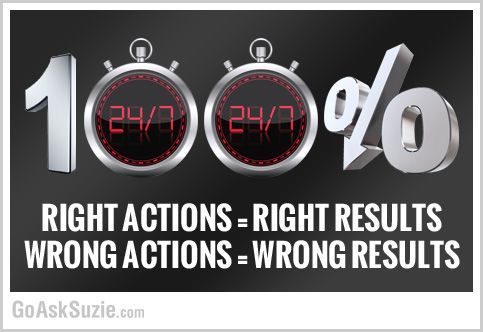
But there’s a catch. This rule applies both to the short-term AND the long-term results of your actions.
That’s right. We’re talking about total responsibility. In Scott’s mind, his visits to prostitutes would have satisfied his desires for recreation, reward, and freedom.
But did they really? I’m not so sure because there were other effects (consequences) that resulted from those actions.
Here are a few:
- Scott ends up sleeping on a friend’s couch (loss of freedom).
- Scott damages the trust that his wife had in him (regret).
- Scott struggles with guilt on a daily basis (self-punishment).
- Scott feels a sense of failure and loss of innocence (shame).
- Scott’s life is left in shambles (financial loss).
- Scott’s parents feel very hurt and disappointed by his actions (guilt).
So, I ask you…
Where’s the reward and recreation in all that?
Notice that as we expand our view, we recognize that in the long run, Scott’s actions didn’t get him the results he wanted. The reason? Because he was using a type of short-sighted strategy that always backfires (more on this later). For now, let’s look at another one of Scott’s motivators… stress relief.
Scott was experiencing stress brought on by the financial burdens of the wedding. But rather than deal with the source of the stress (finances), Scott sought relief from the symptoms. Follow this through with me. What happens when you deal with symptoms and not causes? That’s right. The relief is temporary. It’s like rearranging the deck chairs on the Titanic rather than repairing the holes torn by the iceberg — it’s only a matter of time before the problem gets worse.
Now, maybe you can start to understand why Scott was able to justify continuing to visit prostitutes. In his mind, he was using them for stress relief. And in some ways, it did help him avoid short-term discomfort… but only briefly, because avoiding isn’t the same as correcting, is it?
Let me give you another way of looking at this.
Let’s look at it from a drinking and driving perspective. Everybody knows not to drink and drive. We’re all aware that the penalties (consequences) can be severe, right? So why then, are so many DUI’s handed out each year? Are people just not smart? No, I think most of us are pretty intelligent. So, what’s happening here?
Here’s what most people do:
Before taking a drink, a driver will consciously or unconsciously weigh the pros and cons… imagining the warm comfort of alcohol as it pervades the bloodstream… the sense of freedom, the upsurge in power, the sense of buoyancy, and the relief… how good the eventual numbness to reality will feel. So far, all of these seem like logical rewards and perfect prescriptions against discomfort.
Next, the driver calculates the risks associated with drinking: impaired control, loss of coordination, slow reaction time, etc. And then what do they do? They tell themselves: “I can handle it,” OR “I’ll be all right.” And so, the driver gives himself permission to proceed.
What has happened?
Well, in his mind, the driver has made a startling conclusion: the benefits of alcohol (relaxation, escape, courage, and reward) are all available at a price that won’t be too high.
Did you notice something?
You probably did. While weighing the short-term positive effects (warmth, comfort, courage, numbness, and a sense of reward), the possible long-term negative effects of drinking and driving were excluded (jail time, death, broken limbs, loss of income, etc.).
Feeling safe in their faulty conclusions, drivers wind up throwing logic out the window and “blanking out” the REAL potential consequences. This is why, according to police, the number one excuse for DUI is… “I thought I could handle it.”
And guess what?
It’s also the number one excuse given by wayward partners (including Scott). They assume they’ll be exempt from any negative consequences.
This is a classic example of hubris.
What is hubris? The word comes from Greek mythology, and it describes a type of self-destructive pride. As the story goes… Icarus was the son of a master craftsman who made him wings of feathers and wax. Convinced he was meant for greatness and wanting to escape his island home, Icarus strapped on the wings and took off. Although his father had warned him not to fly too close to the sun, in his hubris, Icarus ignored this warning, believing himself to be above the law of consequences. Of course, he didn’t make it. The law of natural consequences are impersonal (including the laws that dictate the sun’s heat will melt wax and burn feathers).
Defy the law of natural consequences, and you crash and burn.
For Scott, being busted was a rude (but necessary) wake-up call. Until then, he’d been unconscious of his own illogical thinking. He’d been blinded by his own hubris. He’d been in denial about the true consequences of living a double life and the price that comes with abandoning integrity.
This brings us full circle back to the question we started with.
What does having an affair say about you?
Well, if we are to learn anything from Scott’s story, then I believe the affair points to the fact that you must have been in a similar state of denial about the negative consequences of your actions.
What is denial?
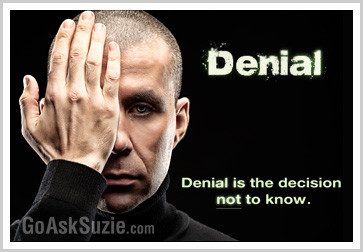
It’s the decision not to know. This means that before you had the affair, you must have found a way to blank out the full range of consequences.
Now… I have an outrageous suggestion for you to consider.
What if your affair is a wake-up call to come out of denial? What if the affair is actually trying to teach you something about yourself? What if by looking deeply into the darkness of your actions, you’re able to shed some light on your personality?
I believe if you’re willing to inquire into your actions, you can transform this painful experience into a powerful process of self-discovery.
Would you be willing to do that?
If you are, let me offer you a tool to jump-start the process. Coming up next are five key questions I ask all wayward partners I work with to answer.
Your mission:
Grab a sheet of paper, read the questions, and answer them as honestly as you can. Don’t judge your answers. Don’t edit them. If you let it, this process will teach you something about yourself.
Once you have pen and paper in hand, go to the next page to get started…
Questions to Discover What the Affair Says About You
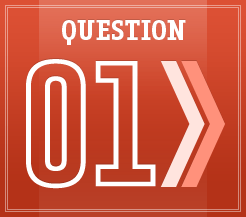
What Was I Trying To Avoid by Having an Affair?
We’re always trying to move toward the things we want, or trying to move away from the things we don’t want. It’s been my experience that for many partners who have been wayward, the affair was an irrational attempt to move away from (avoid) something they didn’t want to feel, see, or experience in their lives.
Answer these questions: (a) What were you hoping the affair would help you… avoid feeling? Avoid facing? Avoid having to deal with? (b) What (or whom) were you running away from?
Here are some of the most common answers I’ve heard from previous clients:
- Dying
- Aging
- Abandonment
- Losing
- Loneliness
- Fading sex appeal
Now stop and write out your own answers.
Welcome Back!
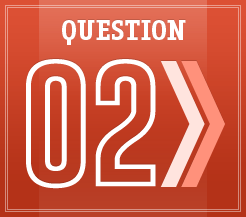
What Was I Hoping To Gain by Going Outside my Marriage?
No one takes action without believing it will pay off. Most decisions are motivated by the thought of some kind of a reward. In other words, you were hoping to gain something (a positive reward) from the affair experience. It could have been a feeling, or it might have been the fulfillment of a secret sexual fantasy. To find out what it was, answer this question and bring it into your conscious awareness. Don’t be surprised if it turns out to be more than one thing.
Some common examples of things people were hoping to gain from their affairs:
- Self-esteem
- Belonging
- Power
- Adventure
- Escape
- Romance
- Intrigue
- A better marriage
(Again, make a list of your own answers.)
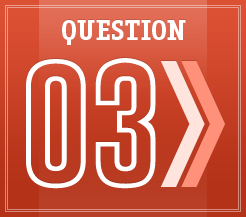
What Do I Find Myself Pushing Against?
The choice to cheat is often a flat-out rebellion or defiance — a way of pushing against an unwanted situation (or feeling). It’s important to acknowledge and bring to light the things that provoke your natural resistance and strong rebellion.
Here’s a list of some things people tend to push against:
- Stress
- Responsibility
- Being controlled
- Being pressured
- Being told what to do
- Hearing “No”
- Intimacy
- Being trapped
- Compliance
- Mediocrity
- Change
(Now, make your list.)
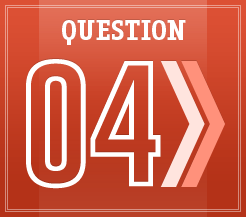
How Do I Handle These Seven Emotions?
Make notes for each of the following seven emotions; about how you’ve actuallyhandled it, not how you’d like to think you would handle it.
For example, do you surf the web when bored? Do you sulk when you’re disappointed? Do you overeat when you feel anxious? Do you exercise when you feel restless? Make your notes and be as accurate as only you can be.
- Boredom
- Guilt
- Insecurity
- Disappointment
- Anger
- Anxiety
- Lust
Key Point #1: Each of these emotions when not handled (and processed) correctly has a tendency to lead us to irrational behavior. For example, the inability to handle boredom is often Enemy #1 for monogamous relationships. Personally, I believe that if more people knew how to handle their restless minds, thoughts, and feelings, the divorce rate would plummet overnight.
Key Point #2: Another potentially destructive emotion is disappointment. You’d be surprised to know how many affairs are actually revenge affairs. This often happens when one partner has been too passive and chooses to store up months or years of personal resentments.
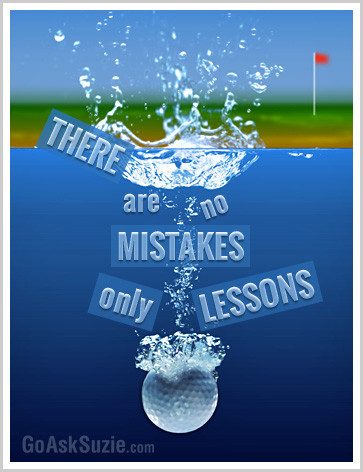
Then, there is the granddaddy of all potentially combustible emotions… LUST.
Lust is sometimes described as an intense sexual attraction or overwhelming desire to get. However you define it, lust is an emotion that inflames our appetites. It’s so powerful in fact that marketers, advertisers, and corporate America spend billions of dollars trying to trigger it. Why? I believe it’s because lust triggers compulsive behavior. It’s important for you to get real with this question. Ask yourself, “How well do I handle lust?” Look back to your past to find clues.
(Now, write out your answers.)
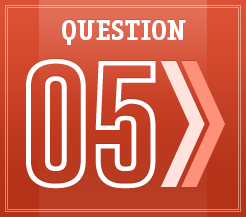
How Do I Handle Pressure?
Make notes for each of the following seven emotions; about how you’ve actually handled it, not how you’d like to think you would handle it.
For example, do you surf the web when bored? Do you sulk when you’re disappointed? Do you overeat when you feel anxious? Do you exercise when you feel restless? Make your notes and be as accurate as only you can be.
In my opinion, pressure is one of the most overlooked (yet very common) preconditions for irrational decisions.
What is pressure?
It’s that feeling you get when others want you to do something you don’t want to do. Ask yourself this: “What do I do whenever I feel pressured or when I feel backed into a corner?”
For example:
Do you blow off steam by having a beer? Do you watch TV? Do you shop? Or do you retaliate by withdrawing?
Create your own list.
Now, let’s recap with an infographic:
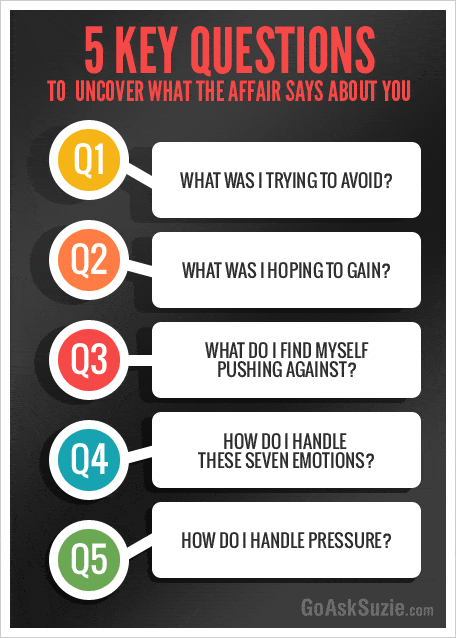
There you have it. My five guiding questions to help you uncover what this affair can teach you about yourself.
Where do you go from here?
I believe you’ve already taken an important step. If you would like to go deeper, go here to get access to my Wayward Partner’s Complete 7-Step Infidelity Recovery coaching program.
It takes true courage to look at yourself.
Asking what the affair is trying to tell you about yourself… could very well become a game changer for you. That’s because I believe that in life, there are no mistakes — only lessons. The question is this: will you be a one-time learner, or do you need to repeat these mistakes over and over before you learn from them?
My advice?
Never make the same mistake twice. Learn. Let go. Move on.
Until we speak again…
Remember… Love Wins!

Don’t forget… You can now get over 13.5 hours of my best Wayward Partner strategies. Learn More Here





